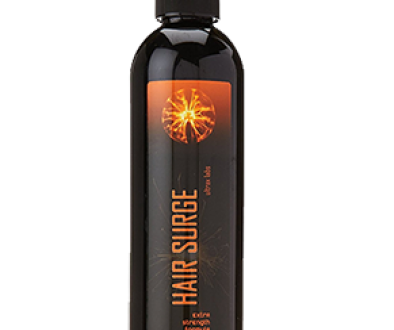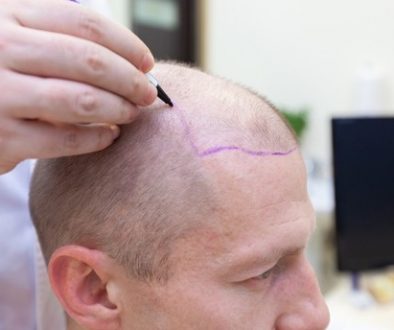Does Tea Trea Oil Work as a Hair Loss Medication?
Tea Tree Oil as a Hair Loss Treatment
There are a number of herbal supplements out there that claim to work as a treatment for hair loss. Whereas there is no question that marketing is over-reaching at best in order to sell a product, the real question that any hair loss sufferer asks is: will this herbal product help fight against baldness? Is there any chance that this product will regrow hair? To date it is important to understand that there is no hair loss cure, therefore realistic expectations must be kept when considering any hair restoration product.
Below I decided to take a look at an herbal supplement that has been said to combat hair loss. This product is an “active” ingredient in a few hair loss remedies including HairMax MD. Tea Tree Oil is also sold as a stand alone product and is often found in fancier shampoos.
Tea Tree Oil
Tea Tree Oil is a natural agent that may be effective against infectious organisms such as bacteria, fungi, and viruses. Common use of this agent includes use as a germicide, antibacterial, antiseptic, fungicide, or anti-inflammatory agent. Additionally, it has been used for head lice, seborrheic dermatitis, dandruff, athletes foot, mouth ulcers, herpes, after shave, toe nail infections, yeast infections, body odor, acne, mosquito bites, cold sores, mouth ulcers, herpes, among other uses.
Though certain promotional websites that sell Tea Tree oil have indicated this product as a treatment for hair loss, no clinical evidence of this claim has been provided. It is my opinion that the reason those who promote this as a hair loss medication can say this is because tea tree oil can be used to treat seborrheic dermatitis. Seborrheic dermatitis is sometimes the cause of a more rare type of non-genetic hair loss called telogen effluvium (a common type of diffuse alopecia). This however, has nothing to do with male pattern baldness or female pattern baldness – the most common type of hair loss.
Conclusions:
Though Tea Tree Oil may be an effective treatment against seborrheic dermatitus and therefore might help treat more rare non-genetic types of hair loss, I have found no clinical evidence to suggest that it has any benefit against Androgenetic Alopecia (hereditary hair loss) which is the most common type of hair loss.
In my opinion, it would be better to stick to the hair loss drugs that have been proven: Propecia (finasteride), and Rogaine 5% (minoxodil). As an adjunct hair restoration treatment, Nizoral shampoo or Revita shampoo both containing active ingredient ketoconazole may also be helpful.
Bill Seemiller
Associate Publisher of the Hair Transplant Network and the Hair Loss Learning Center
View my Hair Loss Weblog
Technorati Tags: Tea Tree Oil, Hair Loss Treatment, hair loss, baldness, regrow hair, hair loss cure, hair restoration, hair loss remedies, HairMax MD, seborrheic dermatitis, hair loss medication, telogen effluvium, diffuse alopecia, male pattern baldness, female pattern baldness, Androgenetic Alopecia, hereditary hair loss




March 10, 2014 @ 6:00 pm
Actually, over the past three weeks I have experienced a marked increase in hair loss and a bald patch becoming visible. As a 50 year old I was beginning to resign myself to it, noticing all the bald patches everywhere etc…. but then I tried STOPPING using the tea tree oil shampoo that I have been using and the hair has become more healthy and I no longer feel the wind on my scalp and the bald patch is hidden under healthy hair.. feel much better now… So tea tree oil seems to have made my hair unhealthy which is the opposite effect my diet and exercise has not changed … So I would say be careful what you apply, maybe it depends on manufacturers and maybe tea tree oil is not for everyone..
May 23, 2011 @ 9:06 pm
I would like to add that a underactive thyroid can cause this, also. And, it will take a LONG time to see results with any procedure except surgery. However, I have heard that at first (with the use of topical ointments, shampoos and vitamins) that you see what is hair falling out of the defective follicles, then you eventually see a halo of new growth forming underneath your old hair. Most people give up. Please do not give up. Nioxin is what my girlfriend used and it worked for her. I am using a lesser priced ointment and vitamin kit and I am seeing less gray and longer baby hairs around my scalp. I hope this helps. At least bald me can be sexy, for some women, it’s like losing their breast.
April 22, 2011 @ 8:28 am
Hi sandra can you tell me how many drops of tea tree oil do i use,and where would i get saw pametto ln topical form.
could you let me know steve
September 3, 2010 @ 11:35 pm
I wish you would have done extensive research about this because tea tree oil does indeed work. When applying tea tree oil 3 times weekly (no more than that) … it works as a DHT-blocking agent. Now you should very well know that DHT production is what causes the hair loss in the first place!
My remedy consists of tea tree oil and 100% saw palmetto extract. Apply 3 times a week. It can take a few months to see results but it does work!
February 19, 2010 @ 11:05 pm
tea tree oil will not grow your hair in two days but it will stop the inflamation in your scalp and it will take week to see result..it works and makes your hair stronger
January 6, 2010 @ 1:58 pm
Abby,
Even if tea tree oil was proven to fight the affects of male pattern baldness, it wouldn’t have any cosmetic impact in only 2 days. In fact, no proven hair loss solution works that fast. Propecia and Rogaine are the two most effective non-surgical solutions for baldness to date. It’s recommended that Propecia is taken for at least a year and Rogaine is taken for at least 6 months to see if it’s working for you.
Best wishes,
Bill Seemiller
Managing Publisher/Editor
January 6, 2010 @ 10:16 am
i have hair loss will tea tree oil works in two days